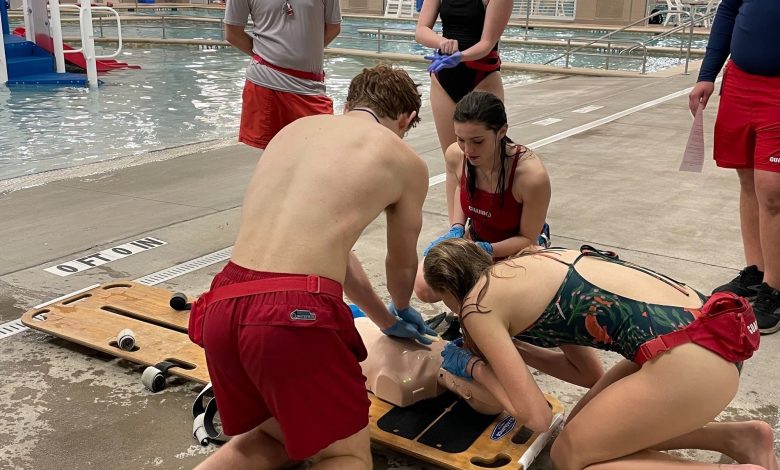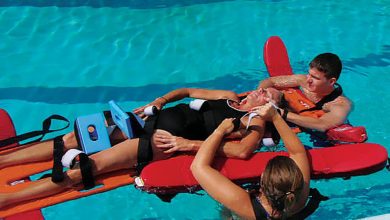Unlocking the Secrets of Lifeguard Certification

Lifeguards play a critical role in ensuring the safety of swimmers and beachgoers. Their vigilance, quick thinking, and life-saving skills can mean the difference between life and death in emergency situations. To become a lifeguard, one must go through a rigorous training and certification process that equips them with the knowledge and skills necessary to perform their duties effectively.
In this article, we will delve into the secrets of lifeguard certification, exploring the training, qualifications, and responsibilities of these unsung heroes of aquatic environments.
The Importance of Lifeguard Certification
Before we dive into the secrets of lifeguard certification, it’s essential to understand why this process is so crucial. Lifeguard certification ensures that individuals are well-prepared to respond to emergencies and maintain the safety of swimmers and beachgoers. Without proper certification, lifeguards may not possess the skills and knowledge needed to perform their duties effectively, which could lead to tragic consequences.
Certified lifeguards are trained to recognize and respond to a wide range of aquatic emergencies, such as drowning, spinal injuries, heart attacks, and more. Their training covers water rescue techniques, first aid, CPR (cardiopulmonary resuscitation), AED (automated external defibrillator) use, and even managing large crowds at public swimming areas. This certification process instills confidence in both the lifeguards themselves and the people they are responsible for protecting.
The Secrets Behind Lifeguard Certification
Comprehensive Training: Lifeguard certification typically involves an intensive training program. This training covers various aspects of water safety, including water rescue techniques, how to recognize and respond to aquatic emergencies, CPR and AED usage, first aid, and more. The duration of the training can vary but often includes both classroom and practical, hands-on components.
Prerequisites
To enroll in lifeguard certification courses, individuals must meet certain prerequisites. These prerequisites may include a minimum age requirement (usually 15 or 16 years old), a specific swimming skill level, and a physical fitness test. The swimming skills requirement is essential since lifeguards need to be strong swimmers to perform water rescues effectively.
Certifying Organizations
There are several organizations that offer lifeguard certification, such as the American Red Cross, the YMCA, and the National Pool and Waterpark Lifeguard Training Program. Each organization has its own specific requirements and curriculum, but the underlying principles of lifeguard certification remain consistent.
Written Examinations
Lifeguard certification courses often include written examinations to assess candidates’ knowledge of water safety, emergency response protocols, and first aid procedures. These exams ensure that lifeguards understand the theoretical aspects of their role.
Practical Skills Assessment
In addition to written exams, candidates must pass practical skills assessments. These assessments involve demonstrating their ability to perform water rescues, administer CPR, and use an AED effectively. Lifeguards must also show competence in first aid techniques.
Renewal Requirements
Lifeguard certification is not a one-time achievement. To maintain their certification, lifeguards must participate in regular renewal courses, which update their knowledge and skills and ensure they stay current with best practices in water safety and rescue techniques.
Professionalism and Communication
Effective communication is a secret weapon of lifeguards. They must remain calm and composed in high-stress situations and communicate effectively with both the victim and other lifeguards. This skill is often overlooked but is essential for a lifeguard’s success.
Legal and Ethical Responsibilities
Lifeguards have a legal and ethical obligation to follow proper protocols and procedures. Understanding these responsibilities is a vital component of lifeguard certification. Failing to adhere to these responsibilities can lead to serious legal and moral consequences.
Continued Education
Beyond the basic lifeguard certification, many lifeguards pursue additional training and certification in specialized areas, such as water park safety, ocean lifeguarding, or wilderness water rescue. These additional certifications expand their skillset and make them even more effective in their roles.
The Role of Lifeguards
The secrets behind lifeguard certification are not just about passing tests and gaining a piece of paper; they are about preparing individuals for a crucial role. Lifeguards serve as the first line of defense in aquatic environments, responsible for preventing accidents and responding to emergencies. Their responsibilities include:
Preventing Accidents
Lifeguards are trained to identify and mitigate potential hazards, ensuring that swimmers and beachgoers have a safe experience. This includes enforcing rules, monitoring swimming areas, and providing guidance to patrons.
Water Rescue
In the event of a water emergency, lifeguards are equipped with the skills and knowledge to perform swift and effective water rescues. They use various equipment like rescue tubes, rescue boards, and even their own physical strength to reach and assist distressed individuals.
First Aid and CPR
Lifeguards are often the first responders in medical emergencies at the pool or beach. Their training includes administering first aid, CPR, and using AEDs when necessary, which can mean the difference between life and death.
Crowd Control
In public swimming areas, lifeguards must also manage large crowds. This involves ensuring that the pool or beach does not become overcrowded and that rules and guidelines are followed.
Education
Lifeguards often play an educational role, informing swimmers about water safety practices and providing guidance on how to stay safe in the water. They also educate patrons about the importance of following posted rules and guidelines.
Teamwork
Effective teamwork among lifeguards is critical. They must coordinate their efforts and communicate with one another to ensure the safety of everyone in the water.
Conclusion
Lifeguard certification is a crucial and often underappreciated process that equips individuals with the skills and knowledge they need to save lives and maintain safety in aquatic environments. The secrets behind lifeguard certification involve comprehensive training, rigorous testing, and a commitment to ongoing education.
Also Read About: Here is What’s Good About Lifeguard courses near me
Lifeguards play a vital role in our communities, and their certification is not just a piece of paper; it’s a promise of safety and security for those who enjoy the water. The next time you head to the beach or the pool, remember the unsung heroes who stand watch, ready to protect and save lives, thanks to their lifeguard certification.



